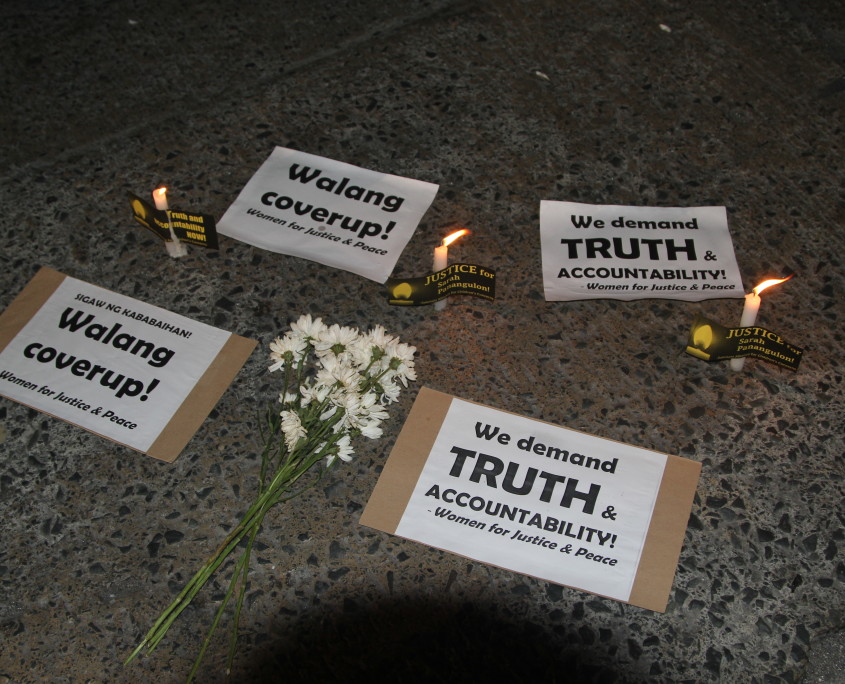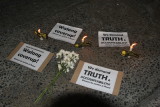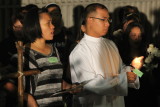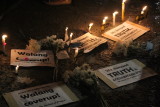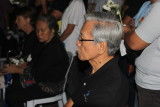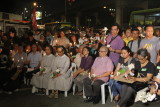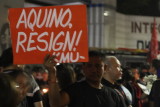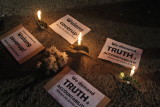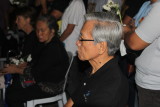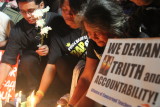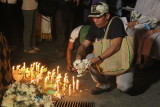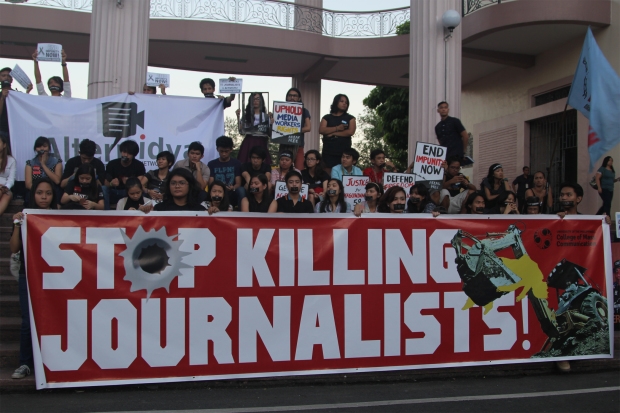
Five years after the massacre of 58 men and women including 32 journalists in Ampatuan town in Maguindanao, justice remains elusive and impunity still reigns. The promise of President Benigno Aquino III to help speedily resolve the case that has put the Philippines in the limelight as one of the most dangerous places for journalists not only remains unfulfilled; through his statements and actions he has downplayed the killing of journalists and ignored the possible accountability of military officers in the Massacre.
Something is already terribly wrong with the country’s justice system when a warlord clan can murder 58 people in broad daylight and still get away with flooding the courts with petitions and motions so as to delay the proceedings, and worse, probably cause the murder of four probable witnesses to the crime.
The majority of the suspects, mostly police officers and members of the private army of the Ampatuan clan, remain at large. Forty-one, including the policemen who flagged down the convoy on November 23, 2009, have been granted bail. The government prosecutors are accused of accepting bribes. Just four days before the fifth year of the Ampatuan massacre, another possible witness was again gunned down.
All these favor the Ampatuan clan, allowing it to show the families of the victims and the witnesses that they are still in power and can play with the courts until public interest on the case wanes so that they can forge out- of- court settlements and strike deals with the government.
A welcome development in the midst of many disappointments is the Supreme Court’s release of guidelines in December 2013 to expedite the case. However, there is still no cause for celebration as the case continues to drag on.
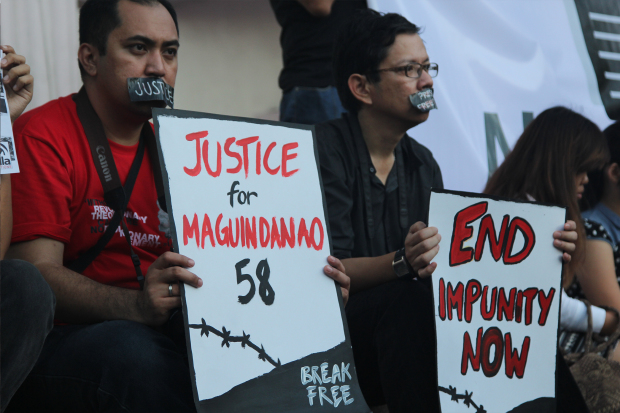
The Ampatuan Massacre is a key issue in the Filipino people’s struggle against the culture of impunity that has afflicted the country for so long. A decision favourable to the masterminds and killers will encourage more killings of and human rights violations against journalists, activists, and other sectors.
Time is of essence. It has long been recognized that it will take the intercession of President Aquino himself to speed up the case. But instead, the Aquino administration promoted the two military officers who refused to provide security to the victims at the time of the incident—Col. Medardo Geslani and Lt. Gen. Alfredo Cayton, who were promoted to brigadier-general and major-general respectively, thus sending across the country and to the armed forces and police that the Aquino administration is not interested in putting an end to the culture of impunity.
Under the Aquino administration, 25 journalists have been killed for their work since 2010., making the Aquino record second only to that of the Gloria Macapagal Arroyo regime. Instead of recognizing the political nature of the killings, Aquino has also blamed the victims themselves and dismissed the cases of journalists killed as merely the consequence of personal disputes. This does not only aggravate the pain of the bereaved families whose lives are also at risk amid the lack of meaningful government support, but more alarmingly feeds the culture of impunity and the reign of injustice in the country.
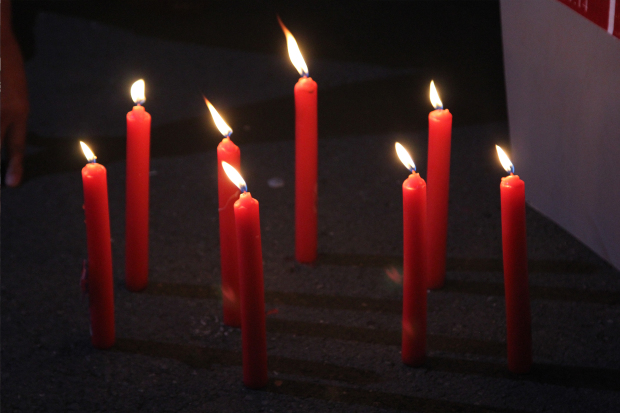
For these reasons, the President and his administration should be held accountable as well.
Despite the declarations of President Aquino that his administration has been implementing “reforms” in the country’s system of governance, traditional patronage politics still characterize the policies and official acts of the Aquino administration, and political dynasties and local warlords still lord it over the country.
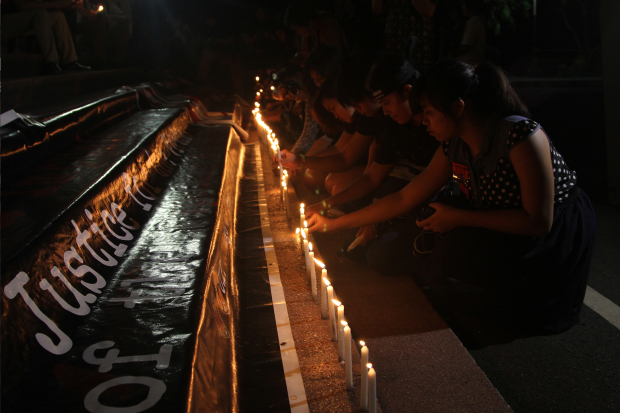
Attaining justice for all those killed not only in the Ampatuan massacre but in the many cases of extra judicial killings as well lies in the hands of the Filipino people. The people and not only the journalism and media community must remain vigilant. They need to monitor developments in the Massacre trial and other cases closely, exert pressure on the government, and demand justice for the victims of the Ampatuan massacre and other killings of journalists as well as those of activists and human rights defenders. But even more crucially should they continue to monitor the policies, acts and statements of the Aquino regime towards holding it to account for helping perpetuate the culture of impunity.
AlterMidya is a nationwide network of independent and progressive alternative media outfits in the Philippines that promotes journalism for the people.

